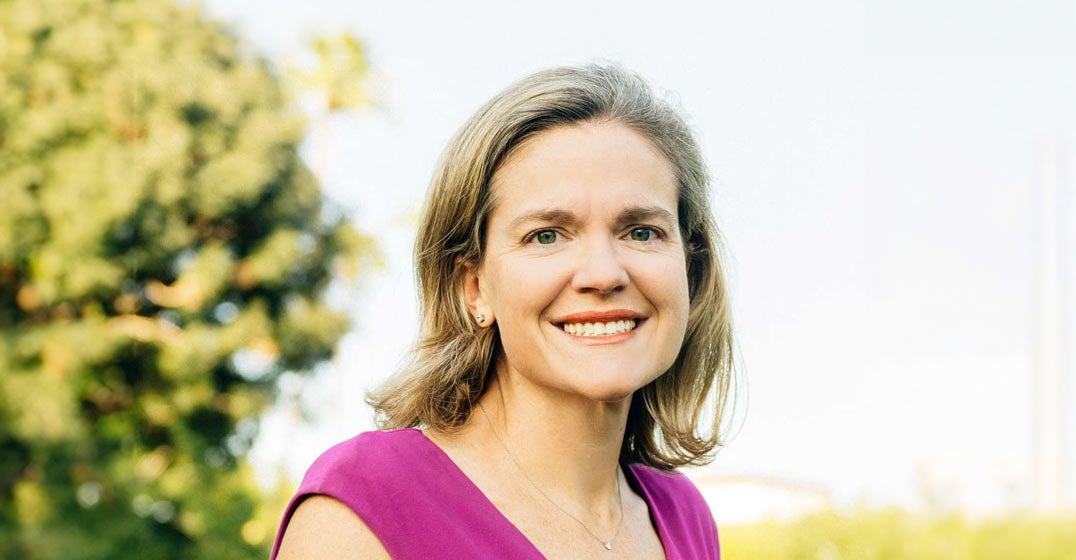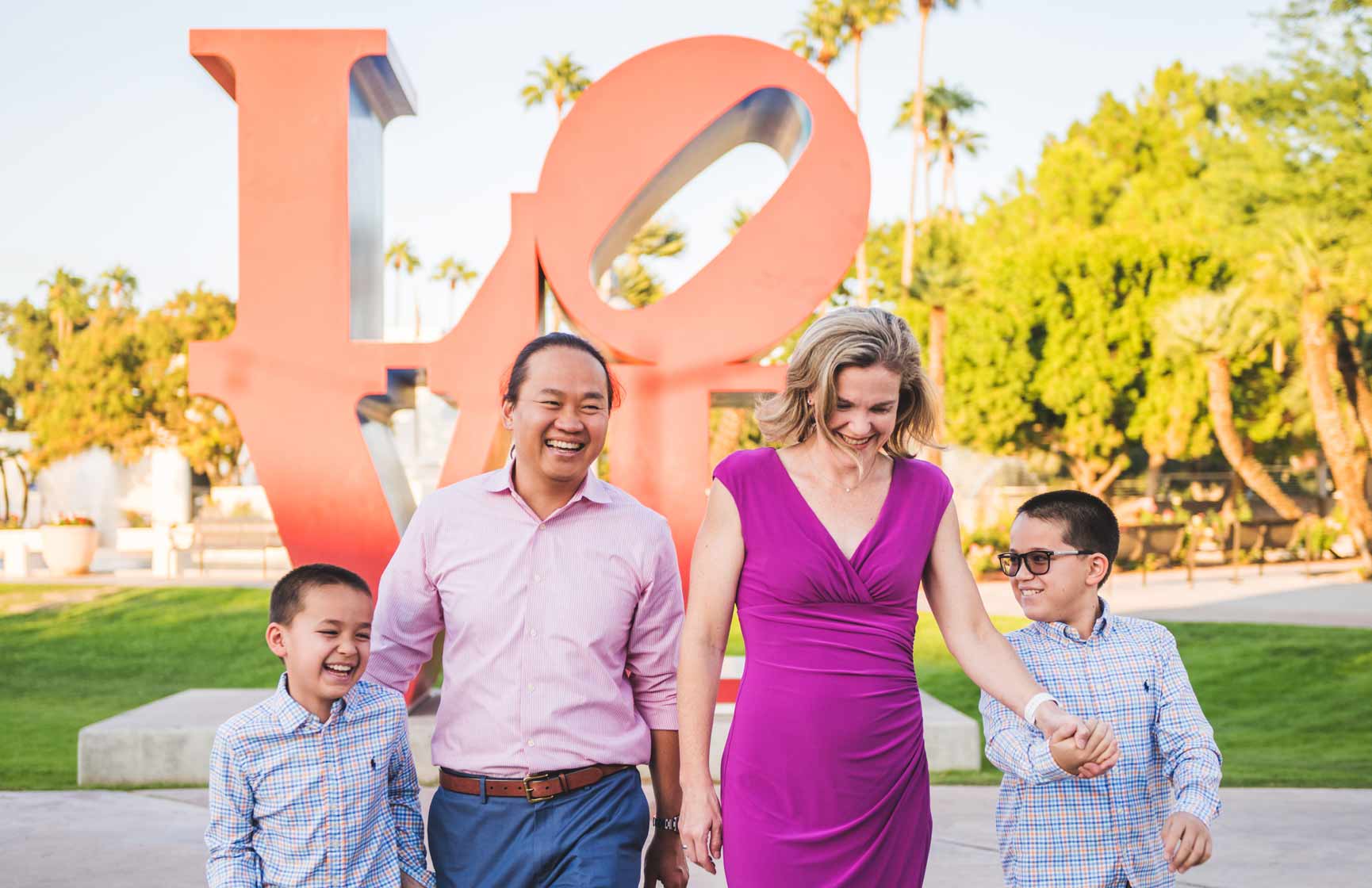Q&A with Sarah Moesker: General Manager, Phoenix

Sarah Moesker talks about helping Phoenix companies embrace change, what she looks for when she’s hiring, and the importance of being more than a coach and mentor.
What makes a great consultant?
Forever learners. Folks who are curious, humble, who have tremendous grit, and are consummate team players.
Tell us more about why humility is important.
When you think about your best friend, the best team you’ve ever worked on, your favorite boss, and you describe why those people and those experiences were so great—it’s usually because you were dedicated to a higher purpose together. It’s rarely because the person leading them was sure that they were the best in the world. If we want to produce the best teams and the best outcomes, there’s a certain amount of our own personal pride that we have to give up in service of the best solution for everyone. I’m not looking for a bunch of star players who cannot collaborate. I look for great collaborators who happen to be star players.
What else are you looking for when you’re hiring?
So, I have four tests. The first is the coal mine test. If both of us were locked in a coal mine for a week, would we both come out alive? If you pass that one, then you move to, would I let my child work for you? If you pass that one you move to the third which is, would I let you run the business without me? And then, my last criterion for hiring someone is, what’s the secret superpower that you’ll bring to Slalom Phoenix? What will you bring that will help us be better together tomorrow than we are today?
Have you lived in Phoenix for a long time? What do you love about it?
I moved to Phoenix twenty years ago, mostly for the weather. And certainly, this time of year, in the fall, in the winter, in the spring, it doesn’t disappoint. But really, the reason I’ve stayed in Phoenix for the last 20 years is, in addition to our enviable winter weather, is our great and dynamic mix of people. We really have a thriving innovation space. It’s driven, in large part, by Arizona State University. For the fifth year running, it has bested MIT and Stanford to be the most innovative university in the country. In addition to that, it’s really hard to top the Arizona sunsets. And the tacos—the tacos are delicious.

Tell us about Slalom Phoenix. What’s special about the team there?
I could go on and on about this one. What’s different about Slalom Phoenix is fundamentally the people. I have certainly, in my career, worked with companies that might have larger name recognition, but I have never worked with a better group of people in my life. They are consistently smart, ambitious, hardworking, but most of all, they’re incredibly kind and wonderful people. And without the kind part, none of the other characteristics really matter. I’m convinced that as we continue to recruit and hire folks who share and hold dear those characteristics, we will do unparalleled work right here at home, in the Valley of the Sun.
What kind of work are you focused on in Slalom Phoenix? What trends are you seeing with clients?
Phoenix is typically not on the leading edge of technology adoption. So, we’re helping our clients catch up in that great digital race. We’re helping our clients leverage their data, build technology solutions, and migrate to more robust and flexible cloud-based solutions so that they can be dominant players as we head into the next century.
Shifting to the cloud is a lot of work for organizations. There are the technical aspects of the work, the migration. But the most challenging piece is the people and the process. People are having to come to terms with these big changes and shift their mindset—and then go from shifting their mindset to wholeheartedly embracing those changes. We love partnering with our clients to help them make these changes and seeing their organizations transform to be faster, more efficient, and set up for success in the future.
How do you build diverse teams?
The first thing you do is look at your community and ask yourself, What do our customers look like? What is our make up? And then, you turn the mirror on yourself and look in your office and ask, How well are we reflecting our customers in our community? You might notice some gaps. Then you have to proactively say, How am I going to go about addressing this gap?
Often, your first, your second, and sometimes your third attempt don’t work. So you have to continue to measure and say, Okay, if this isn’t working, what am I going to try that’s different? If I am looking for Hispanic engineers, where do I find them? Maybe I go to my local universities and hire analysts out of the university that matches a Latinx subset of our Phoenix population. Maybe we change up our recruiters and make sure that we have adequate diversity in our recruiting team. Maybe we leverage our diverse employees to look for folks who look like them to tell their stories so that we can unlock across all segments of our cities and states.
In addition to that, the other piece that’s really important from an inclusion and diversity standpoint is, it’s not just about gender, it’s not only about ethnicity. It’s also socioeconomic, it’s also based on sexual orientation. There’s more to inclusion and diversity than just a handful of factors.
And then, to really make it work, you’ve got to go one click down and work together to solve challenges of unconscious bias. Because you can get the diversity piece through looking at the numbers, adjusting your tactics, but if you want the inclusion piece, as you start to resemble your community and the metrics that you’re looking for, you have to say, Okay, it’s not enough just to get to the numbers. Does everyone feel included? Which is really going to be the key to retaining and having that diverse workforce actually thrive. We’re working hard to pilot a series of trainings about unconscious bias.
How would you describe your leadership style?
I was a rower in college, and I’m a triathlete today, so I see myself first as a coach, and second as a mentor. One of the things I’ve come to realize over the last couple of years is that those two things are not enough. In many cases I also need to step up into the role of a sponsor. Because there are a number of folks who are very worthy and who are incredibly hard workers but have blockers on their path forward. Sometimes coaching and mentoring are, quite frankly, not enough. So, I make sure to be a coach, mentor, and a sponsor.
How do you define that, being a sponsor? What do you do in that role?
I’ve been examining my own unconscious bias and my own privilege. I have a renewed awareness that some of the privilege that I have been granted doesn’t exist for other people. So, my job as a sponsor is to deeply understand an employee, a direct report, or a team member. Understand their strengths, their weaknesses, understand where they come from, and what they’re all about. And understand where there may be icebergs in their path to where they want to go and helping forcibly remove some of those. Because fundamentally, if they’re doing all the right behaviors and they’re not getting the results they need and deserve, sometimes they need somebody to forklift a barrier out of the way.
It’s one thing to catch a fish for somebody. It’s another thing to teach somebody how to fish. But sometimes you can’t even get to the river. And sometimes my job is to drive you to the river so that I can teach you how to fish.
That’s really powerful. Can you give an example?
I realized about ten years ago—and it still gives me chills to say it—that I am capable of being a sexist even though I’m a woman. My second in command on a very large program—a quarter of a billion-dollar implementation—was a woman. I was coaching her to be bold. I was giving her specific direction about how to manage people, but fundamentally, no one had ever taught her the business. No one had taught her the finances. They were teaching her to be loud and speak bold but not how to play the game.
I realized that even though I was of the same gender, her gender was a blocker for her to become a leader on our team, and I wasn’t helping to remove it. I realized that what I needed to do was create a safe space to teach her the business side of our program, as well as create a space for her at the table in those executive-level finance conversations. I’m pleased to say she became a leader.
What’s the best advice you’ve ever received?
For me, it’s pretty simple. Remember who you are, where you came from, and what you’re all about.

